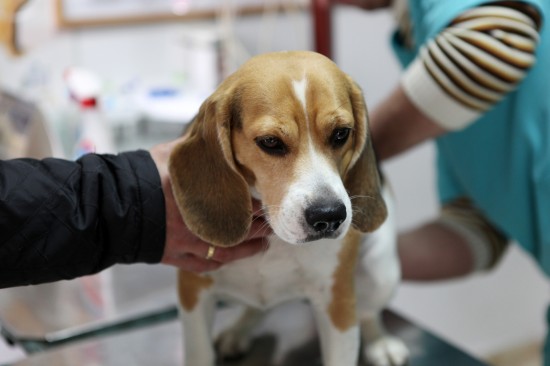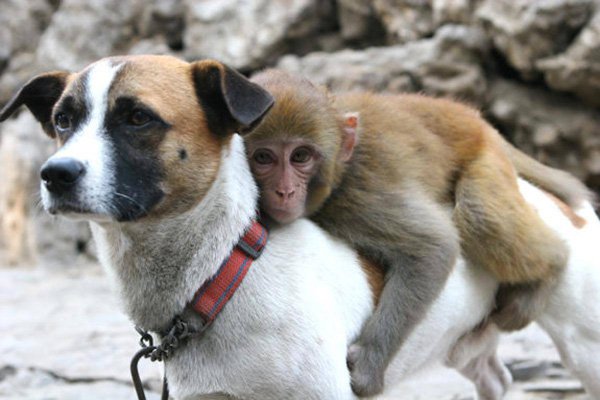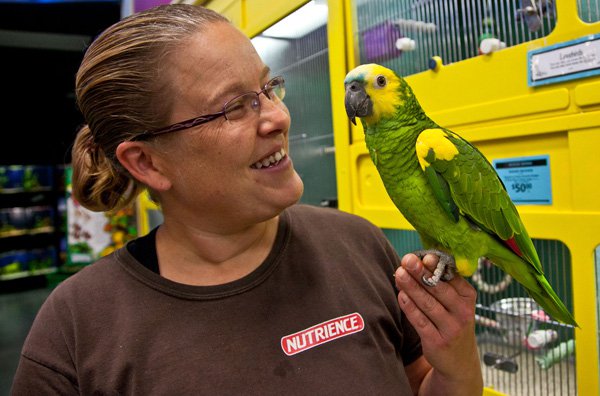
Animal mummies from ancient Egypt are featured on banners flying from poles here in middle-to-upper class southern California and I realized something significant but not earth-shaking.
I didn’t care.
I was fascinated with Egyptology back in the 4th grade when I built a model pyramid out of cardboard and made little mummies out of clay. I knew back then that some people mummified pets, and that was fine, but I didn’t want to model little dogs or cats, just humans.
I have nothing against animals. I just think that sometimes they are valued, and their rights valued, and their alleged “feelings” valued more than those of human beings — and that is concerning.
Here is a literal translation of Genesis 1-26 and beyond — one of the first verses a tiny kid starting school like me read in Hebrew. It says pretty clearly that we are supposed to have dominion over non-human species. Of course, they are sacred, but we are more so.
I remember going to the slaughter-house with Grandmother-Of-Blessed-Memory who explained to me that because they were sacred, no chicken could be killed without a blessing and it had to be done by a Rabbi.
In a public clinic where I rented out my brains for a while, there was a former hippie (a counselor) who was viewed as the paragon of vegan-hood. This woman, much to her credit, rushed to explain to me — as soon as she heard this — that she was no vegan: more of a “lacto-ovo-vegetarian” kinda. And I told her that was fine, but if she did not eat those things she would miss some vitamins and that was not a good thing.
Another woman at the same workplace told me she felt bad because she had tried vegetarianism and was quite contrite about craving meat. Yes, she actually had to eat animals and swallow a lot of guilt, too.
She said I made her feel a lot better after I told her she has getting nourished properly and that anyone who had actually attempted to study the human digestive tract in relation to the remainder of our physiology would have to agree we were “created” to be omnivores.
There is some data that some human pathology may be fostered by eating too much meat. Prostate problems are far less frequent in meat-free folks.
I actually dealt with someone at that same institution who told me that Christians should not eat meat. I made no attempt to argue with her since I have no idea where that could be found in the Bible – a book which a lot of people who claim to be religious let other people read for them and explain to them rather than reading themselves.
Oy!
Our attachments to little Spot and little Fluffy have found their way, regularly and consistently, into the television evening news. Somebody must have decided that the demographic for same includes people (I have a feeling they are women of a certain age) who are stroking the back of their own Spot or Fluffy as they watch TV together.
I have heard entirely too many stories on the news about either a cat who allegedly dragged a baby from a burning building or a dog who warned a family about the conflagration by writing the word “Fire” with his paw in the mashed potatoes.
When I was moving from being a professor of psychiatry at the University of Kansas, Wichita medical school to a like position at the University of Oklahoma in Oklahoma City, I was supposed to be part of an initiative to increase the academics of said institution.
On grounds of propriety, I refuse to cite or link to the only article I found in the published psychiatric literature from that august institution at the time, which was a perfectly chaste discussion of the human-bovine relationship. HINT: It was more carnal than carnivore.
I worked in agrarian environments during my French medical school training as well as during my later career-building in both western Canada and America’s Heartland. I have indeed “been around.”
Amiens, in northern France, was heavy on the wheat-farming sector of the population. Most of the medical students were pretty middle class, but there were a few kids who had grown up on the farm and came from families where the expectation was to get the legal minimum of education, the “Brevet” awarded at about age 14 in France, before staying home and helping with the family farm.
Those who came from such a background spoke lovingly of their farm animals.
My smarter-than-the-average-bear readers have probably guessed what is coming next.
I learned early on that it was not unusual for a young man to have his first sexual experience with a farm animal.
This is part of the culture of other countries as well. I can reference the classic Italian flick, “Padre, Padrone.” (“Father, Master”).
In Western Canada, there were jokes about how sheep were tough to catch and you needed Velcro gloves to accomplish the task.
In Wichita, at the University affiliated Veterans’ Hospital, I was actually assigned to “be a friend to” and “otherwise help” a female psychologist who had excellent credentials, had moved them to Wichita from Chicago, and seemed a bit “nervous.”
Turned out she routinely took sexual histories from her patients and had never heard of a young man taking his first physical pleasure with a farm animal, but she was now convinced that in Kansas, “all men do it.”
There was actually a published study (It is probably pretty obvious that I live by those) that suggested the real number was closer to 1 in 6, but this did not seem to comfort her very much. By now she has surely moved on to (I can’t seem to escape puns of the most wicked sort ) “greener pastures.”
While still in Oklahoma and trying to build private practice, I had the very non-sexual idea of building that practice by writing an assuredly NON-erotic (stupid I am not) article on the human-pet relationship — more specifically, the grief that accompanies the death of a pet (for a local print magazine).
It was probably the most popular article I had written up to that time and brought me several patients. Many of them left psychiatrists or therapists whom they considered untherapeutic or even unsympathetic because the latter simply suggested that they replace the pet.
This is about as sensitive as telling someone to get married the day after their spouse dies.
“Replacement” of the object of one’s affection is obviously a powerful part of the healing process. But, it is only a part, and it is not something someone should do before they are ready.
A relationship between human and animal has got to be an all-transference relationship.
Transference is one of the most powerful concepts of classical (Freudian) psychotherapy. All that it means is that when someone enters the room with a therapist (or any other human, for that matter) they bring all of the previous experience that they have had with similar relationships with them, automatically assuming similarities with past relationship experiences.
In most daily relationships, we manage this.
If you feel a bit squirrelly, for example, waiting in line at the bank (because someone you asked for a loan treated you rotten there once, for example) you will usually remain as functional as the situation requires, get done whatever you need to do at the bank, and leave.
When a woman entered my office angry because I am a doctor and she felt all doctors were worthless because one “killed” her mother, we had a problem we had to work through.
In the common case like the bank, you “rationalize” it. In the second case (where the woman saw me in a county mental health center and could not afford to see any doctor other than me) it took a lot of talking to get rid of her negative feelings.
We did it and things ended up going fairly well.
The problem was resolved with the only thing psychiatrists have other than pushing pills that can help people resolve problems — and that is talking.
Despite dolphins, Dr. Doolittle, and a recent revelation that hyper-domestic animals like dogs or cats see humans as incompetent dogs or cats, the fact remains that animals do not talk.
At least in no way humans can consistently understand.
This means that human-animal relationships are going to be the ultimate super-transference relationships. A human can see in his or her pet whatever he or she needs in a relationship. Couple that with longevity (“Fido has been with me plenty longer than my last husband”) and you have a relationship which I believe to be very often deeper than anybody cares to admit.
I mean, an animal may mean the most of banal things with a repeated gesture. Wagging the tail could mean, “Here is the human! I am going to get fed!”
If you believe the classical experiments of Pavlov and his dog, animals can sure learn well enough to condition a reflex.
I mean, the ringing bell meant steak, so it made the canine salivate at the bell as if for a steak.
A human will often interpret this as “T,” or some other such higher function
This is transference in bloom.
Several women have reported to me that there is a very similar kind of conditioning in human men. Me, I have long since given up on cooking, and have a loving husband who cooked for himself for several years before we married. And now, he cooks for me as well, so I really have no data on this one.
I LOVE HUMANS.
Humans speak.
Okay, there are many that speak a version of English so unintelligible it might as well be something else — but even they are often trainable, if they want to be.
It is not just the spoken languages of Shakespeare and Moliere that make me squeal with delight (I am indeed a Francophile).
It is the fact that languages survive at all — mainly because somehow, they got written down.
Written language is more fragile than we think. Video and creative computer multisensory interfaces seem to be pushing the written-down word out of the human consciousness.
Before shrugging this off (along with that regrettable middle step, the abbreviations of texting) realize that whatever the written word was written on represented a sort of perpetual data storage mechanism.
When it wasn’t there, things got lost.
Not long ago I wrote an article about Boadicea, the Celtic warrior princess who attacked Julius Caesar’s armies after his troops killed her husband and raped their daughters. I had a heck of a time researching this one, mainly because the Celtics had no written tradition. Nobody could even agree on how to spell her name correctly. The only serious documents about her were written by Tacitus, the Roman historian, who probably was at least a little biased when he suggested she ended up starving out her own troops because she was not a terribly competent warrior.
Even if animals can somehow tell their own stories, I doubt they have reached a comparable level of articulation and sophistication as us humans.
HUMANS HAVE MUSIC.
You simply cannot compare the two or three note call of an elephant, a whale, or a swan to Mozart or Frank Sinatra.
HUMANS HAVE ART.
Again, we must not take for granted the Mona Lisa. This is not nest-building or drawing a circle in the sand.
We always seem to be amazed at mating habits and complex “dances” of animals. I remember as a child, seeing a peacock spread his tail feathers to try to impress a seemingly somewhat indifferent peahen.
I remember empathizing with her, as I did not think the display — even when the male got his feathers to vibrate — was just not that interesting.
I wondered, even then, about the continuity of the peacock species. I mean, I simply could not believe that Mrs. Peacock was going to get “with egg” – my delicate way of saying “pregnant” — this way.
I learned later that Leonardo da Vinci’s prowess did indeed assist him in maintaining a stable of fine young men, as was his inclination.
Humans can postulate higher spiritual inclinations for art, too.
HUMANS MOVE NICELY and DANCE.
Admittedly I thought of dance before athletics. I always thought there was something perverted about what the Protestant chaplain at the University Hospital in Fargo, North Dakota used to call the “idolatry of the body.” I mean I always thought the epithet “athletic achievement” was an oxymoron. Using something like anabolic steroids actually hinders the reproduction of the species.
Also, I believe notions like “competition” and “winning” are vastly overrated.
Granted, the key to that belief may be somewhere on my second X chromosome.
From ballet to ethnic folk dancing to strip-tease (all right, the last one might contribute to the continuity of the species) we have splendid uses of human physiology that contribute surely to the joy and the well-being of the performer and most likely, do something good for the observer as well.
I LOVE SCIENCE.
As someone who asked “why” terribly often as a kid and smiled with delight when I thought I found out at least how, I was hooked early.
I am sure that animals have an understanding of the universe commensurate with their model of same, but I would be really shocked if there were a way to prove that they did experiments to test it.
They don’t have a language we can understand well enough to tell us, anyway.
And there you have t. We have proven that our “dominion” over the animals is warranted many times over.
“Pet” people often ask me if I have one.
I generally tell them I have a pet husband who merits all the care and affection I can provide for him, and much, much more.
And that is one relationship “Fluffy” or “Spot” could never supplant.
 Keeping Your Dog Calm At The Vets
Keeping Your Dog
Keeping Your Dog Calm At The Vets
Keeping Your Dog
 The Lowchen Dog Coat Types And Colours
The Lowchen Dog C
The Lowchen Dog Coat Types And Colours
The Lowchen Dog C
 Dogs are People
Dogs are People
The ultimate dialogue of wheth
Dogs are People
Dogs are People
The ultimate dialogue of wheth
 Maintain hygiene and get the dog food from the online store of Ipswich
Maintain hygiene and get the dog food from the online stor
Maintain hygiene and get the dog food from the online store of Ipswich
Maintain hygiene and get the dog food from the online stor
 A Perfect Partner to Your Feline's Health
A Perfect Partner to Your Feline's Health
A Perfect Partner to Your Feline's Health
A Perfect Partner to Your Feline's Health
Copyright © 2005-2016 Pet Information All Rights Reserved
Contact us: www162date@outlook.com